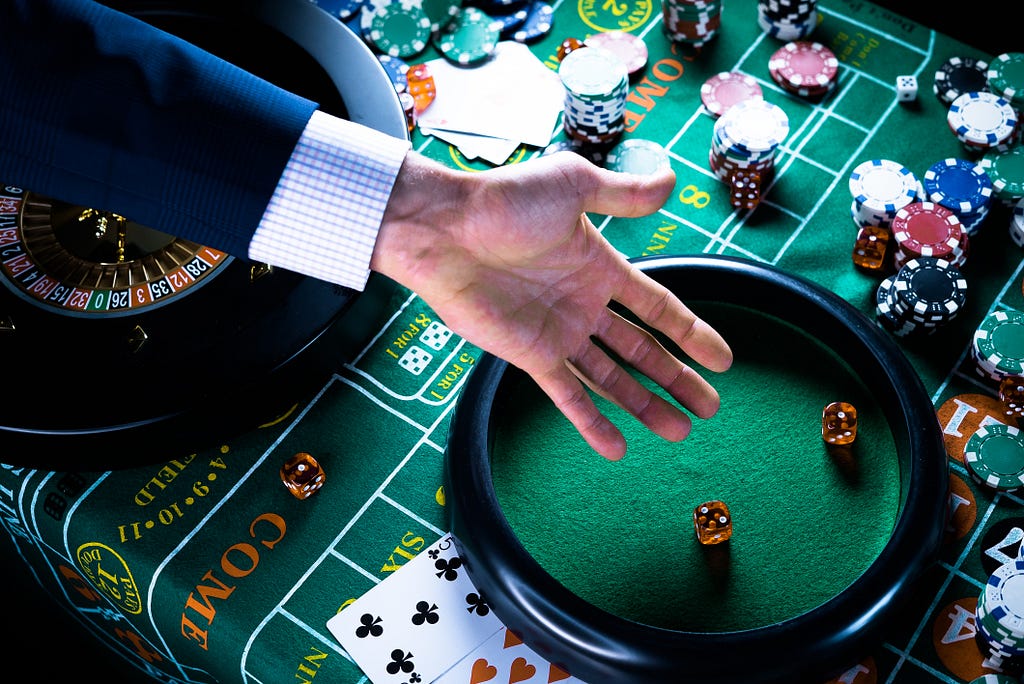Why you should never bother with trying to find a publisher.

In case you are not aware, a major antitrust court battle over the proposed merger of Penguin Random House and Simon & Schuster culminated with oral arguments back in August. Penguin Random House and Simon & Schuster are two of the so-called “Big Five” in the publishing world, with the other three being HarperCollins, Hachette, and Macmillan.
Together, these “Big Five” control about 80 percent of the US and some of the overseas publishing world. The DOJ sued Penguin Random House, Simon & Schuster, and their parent companies to keep the two publishers from solidifying a $2.2 billion merger agreement that the DOJ said would stifle competition, leaving PRH/SS controlling between a quarter to a third of the US publishing market.
The trial wrapped up on August 22 after 3 weeks of some of the most candid, honest (both publishers were under oath to tell the truth), and sobering testimony ever revealed about what really goes on within the secretive halls of the publishing industry’s biggest players.
For decades and decades, the major publishers have been very tight-lipped about books sales, royalties, how many books they actually sell, why some book deals are into the millions of dollars, and why others never sell but a mere handful, if any at all.
I have been saying this for years, but now the hard numbers have actually come into the light of day. What we have learned these past couple of months is that these major publishers are running what should be seen as little more than an over-hyped scam.
Do the publishers make money? Damn right they do. Into the billions. But will you make any money as one of their published authors? Let’s look at…
The Real Numbers
Ask just about any new or seasoned author if they would love to get published, meaning picked up by a major publisher, and they will jump at the chance — “Yes!”
Not so fast. Before you sign over your book rights to that major publishing house for the next 5 to 7 years, just how much money is that book deal contract actually going to be making you in terms of royalties and actual sales?
Most authors don’t know.
But those of us who have been in this industry a while do know. And it’s not pretty.
Here are the facts according to industry insiders and the numbers that were released during the trial:
- No one, not even industry veterans can predict which book will be a bestseller. It is literally a crap shoot. They openly admitted they don’t know. No one does. It’s impossible to predict which book will be a bestseller and which ones will sell little to nothing.
- Big royalty advances do not guarantee that a book will sell. In fact, there’s a huge conflict of interest within a publisher to market books with bigger royalty advances so they can recoup their investments, leaving most authors under contract out in the cold, so to speak, with very little of those marketing dollars. The smaller your royalty check, the less chance you have of getting real marketing dollars thrown behind your book.
- While covering this story, the New York Times reported that in 2021 fewer than 1% of the 3.2 million titles that BookScan tracked sold more than 5,000 copies. Just 4% of books account for 60% of a publisher’s sales. Let that sink in for a moment as you think about point #2.
- More than half of all the books in a publishers catalog will sell less than — are you ready? Less than a dozen copies. You read that correctly. More than half sell less than: not 1,000 copies; not 500 copies; not 50 copies. No. Less than 12.
April Henry on Twitter: “OMG In the Penguin Random House/S&S antitrust trial it was revealed that out of 58,000 trade titles published per year, half of those titles sell fewer than one dozen books. LESS THAN ONE DOZEN. / Twitter”
OMG In the Penguin Random House/S&S antitrust trial it was revealed that out of 58,000 trade titles published per year, half of those titles sell fewer than one dozen books. LESS THAN ONE DOZEN.
Often, books do not even sell one copy — until they are dumped to a discounter, and then there are no royalties for “discounted” books. You make nothing on these discounted “sales”. But the publisher does. It’s in their contract.

It’s A Numbers Game
During the trial, which many in the media portrayed as convoluted and even “characterized by obfuscation and downright disinformation nearly the whole way through”, the publishers portrayed themselves as a kind of “seed investor” in whatever authors’ books they picked up to publish.
If you know anything about venture capital, most VC investments fail, like 90% of them fail, and the only way a VC makes money is from that tiny percentage of investment that actually does blossom and bloom into that rare success story. For every Facebook, or Amazon, or Google, there are a 1,000 other companies that the VC invested in that barely broke even, or went bust and the VC lost millions buying into them.
The publishing industry is evidently no different than a VC. I’m not going to argue the point, it makes perfect sense.
Where the scam comes into play, and perhaps this is not so much on the part of the publishers as it is on our industry as a whole, is the whole romance, the hype, the glam, the faux prestige of getting traditionally published.
In addition to selling the elusive dream, there isn’t a major publisher out there who does not belittle self-publishing indie authors as half-baked amateurs engaging in “vanity publishing”. Other published authors are also guilty of promoting this nonsense as well, like,
“I’m a real author because I have a real publisher.”
Sure you are. And how much “real” money have you actually made as a “real author”? How many “real” books have you really sold? Suddenly, they get “real” quiet. Because the dirty little secret is…
Indie Authors Sell More Books
Statistically speaking, you are never going to find a traditional publisher to pick up your work. Yes, of course a tiny small fraction of authors do, obviously. We’re talking statistics here. Just like your chances of winning the lottery or of landing a VC for your new business venture are something close to negative zero. Statistically, it’s not going to happen. You’re better off launching your company yourself; you’ll be much happier than waiting for some VC to bless your work with seed capital. And you’ll have full control.
It’s the same with your novels.
About 300 million self-published books are being sold each year, generating about $1.25 billion in sales.
According to Wordsrated.com, about a third of the e-books Amazon sells today are by independent (“indie”) self-published authors. About 300 million self-published books are being sold each year, generating about $1.25 billion in sales. While the global traditional publishing market is only expected to grow by about 1% in 2022, the self-publishing market is expected to grow by about 17%.
So while your traditional publisher is going to statistically sell 12 copies of your book or less, the average self-published book sells 250 copies! More than 20 times what a traditional publisher will sell of your book. And you’ll make more by keeping 70% or more of the sales price as your “royalty”.
“Oh, but I have an agent. I’m traditionally published!”
Big. Freaking. Deal. Sure, you got an advance royalty check, but how much was that really worth? $500? Maybe $1,500 if you were lucky? Some advances are merely a few hundred dollars. And statistically, this will be the first and only check you will ever see from your high and mighty publisher. Ever.
As an indie author self-publishing, you will statistically make $1,000 by publishing your work yourself. Yes, you do have to account for your own marketing and production expenses. But even those can be affordable if you’re creative and market intelligently.
Producing a Professional-quality Book
To be fair, this is where the traditional publisher shines: they do professionally produce your book. They will spend thousands in producing your book getting it ready for market. Many first time indie authors looking to publish their first business book or novel get a bit of a sticker shock when they see what it costs to produce a quality book.
You can self-publish a book on the cheap for around $100 or even for free if you can do all the work yourself. I don’t recommend that, it will look and read like crap, but you can. Most self-published authors will hire out this work which can run anywhere from $2,000 to $5,000 for an exceptionally well published novel, like what you see from a traditional publisher.
Most of these production expenses fall somewhere within this cost range depending on what you pay for talent. Top talent, designers, editors, consultants, will cost you more than finding someone on the cheap from Fiverr.com, for instance. (Don’t use Fiverr, it’s a bad idea in my experience. You get what you pay for.)
Furthermore, there is the issue of control over your work. Just how much control did you have after you signed that major publisher book deal? None. You have no say in how the cover looks. No say in how they market or where. No say in any of its production.
In fact, you may end up paying for copy editing yourself anyway since many literary agents demand a polished manuscript before sending it to the publisher for consideration! Copy editing is perhaps the largest expense of publishing and now you’ve just done (paid for) the publisher’s work for them.
And for royalties, you’re lucky to make a $1 a copy, even on a hardcover. The traditional publisher owns you (or your book rather).
But, hey, you saved all that money not having to actually professionally produce and market your book, right?! It’s a fair trade, right?!

Moving Above and Beyond the Statistics
According to WordsRated.com again, over 1,000 indie authors will make over $100,000 selling on Amazon. Sure, that’s a tiny fraction of the authors selling on Amazon, but it seems to fit within the general relativity of the publishing world. A tiny fraction do go on to make it big.
The big difference here is that you, as an indie author, have full control over how well your book sells and gets marketed. As a so-called traditionally published author you have exactly zero control. None.
But how do you reach those meteoric heights?
In the book, The 6-Figure Author, publishing consultant Beau Beauchamp outlines the basic business plan for achieving those all-too-often elusive 6-figure sales. The reason most indie authors do not achieve this level of success, argues Beauchamp, is because we don’t run our self-publishing efforts as the business that it should be. For many if not most of us, writing is a hobby. We’re effectively “hobby publishers”.
Beauchamp’s advice is to ignore what he calls the “scams” and just focus on writing and slowly (or as quickly as your marketing budget will allow) building your audience.
Growing a business, any business, doesn’t happen overnight, or in a week, or even over several months. It often takes years to build an audience to market one’s work — and it takes a certain amount of your own invested marketing dollars as well.
The 6-Figure Author: Business Plan
No newbie (unknown) author is going to make millions of dollars selling just one book through a traditional publisher, statistically speaking. Sure, J.K. Rowling is the rare “lottery winner” example, but don’t count on your work duplicating what she did. Rowling was the very rare unicorn in a sea of millions whose books never saw the light of day being traditionally published.
Similarly, no unknown indie author is going to make a million dollars selling just one book out of the gate either. Anyone telling you that you can — is running a scam.
The bottom line is: to be an indie author making above average sales, we as authors need to be part-time business people marketing our work as well as exceptional writers. To earn those 4, 5, and 6-figure sales dollars takes some investment of our time and our own capital, just like any other business might.
But it can and does happen and without the pipe-dream of relying on some magical publishing faerie to bless your novels.
Keep Writing. Avoid the Scams.
Traditional publishing, in my mind, is its own form of scam. It comes complete with the pipe-dream of fame and fortune while you waste your time spinning your wheels, often for months and years, trying to convince agents and publishers you’re worth their time and money. It’s no better than playing the lottery. A tiny handful of lucky people will win, but millions wont.
Stop doing this. Stop wasting your time perusing a pipe-dream. Approach your craft intelligently, as the business that it is. Even if you’re just a hobby author.
Our industry is filled with more than its fair share of scams and con artists, all of them promising success if you just plop down another $25 for whatever “fool-proof system anyone can use!” And “you don’t even have to write your own book!” We see these scam ads all over social media these days.
Don’t buy into this crap. Hone your craft the only way any of us do — through time-tested patient and persistent practice.
I’m also not a fan of these so-called “group publishing” or “master classes” where some self-acclaimed “guru” or famed author teaches you how to write. Many of these famed authors I can’t stand reading. The way they write, quite honestly, is junk. I seriously cannot read their work. But they are somehow teaching “master classes”. Don’t waste your money learning nonsense from these people.
The best way for you or any of us as writers and authors to learn to write is to read. Period. Read people you really love reading and hone your own style based on what you like about different aspects of their work.
Find your own groove. Cultivate your own voice. Craft your own way to tell a story in a way that millions will want to read bad enough to pay you for your work.
Practice makes perfect. And no system, no class, no scheme you buy online is going to give you the practice you need to become a great writer. Likewise, no system you buy online is going to suddenly or instantly build your audience (your market) who love buying your work.
There simply are no shortcuts to becoming a successful indie author and there are no shortcuts to building and running a successful self-publishing business.
But don’t let the reality of this discourage you! Keep writing. Keep publishing your work yourself. Build your audience. Don’t fall for the scams. And who knows? You may just become the next J.K. Rowling of your own making.
Harley Austin is an indie-author of over 25 published novels and serials on Amazon. He can be reached online at HarleyAustin.com.
Why Traditional Publishing is a Scam was originally published in The Writing Cooperative on Medium, where people are continuing the conversation by highlighting and responding to this story.
Go to Source
Author: Harley Austin